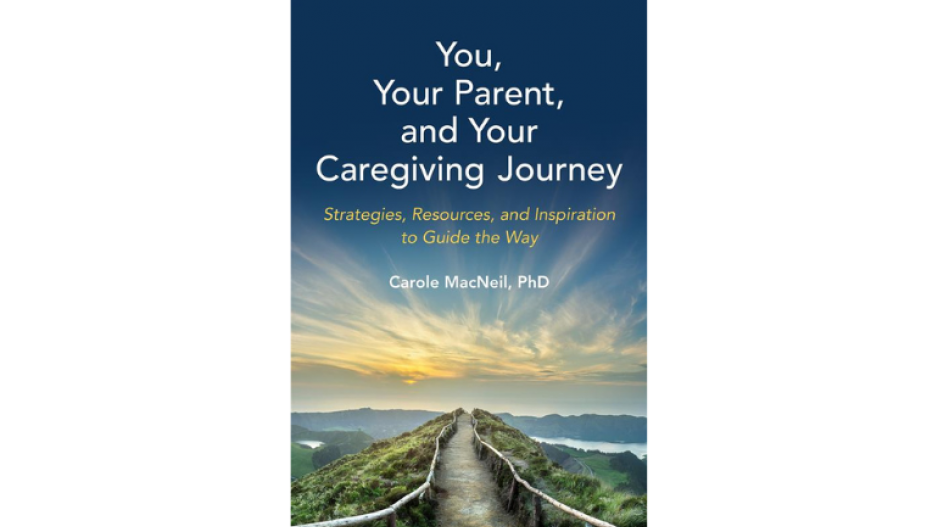
Caregiving was not an intentional life choice nor a chosen professional specialization for me, and it certainly was not something I had planned or prepared for. Like so many of the 53 million unpaid (mostly family) caregivers in the United States, the role of caregiver snuck up on me. And when it did, caring for older parents became a focus (and at times, the focus) of my life for nearly 12 years.
As an educator, researcher and human development specialist, my professional work had been focused internationally on community and youth development, intergenerational partnerships, and human rights, mostly in conflict zones and refugee camps. My professional research and publications were not focused on aging, but on youth. How in the world could that help me prepare for some of the most challenging and meaningful work of my life, the work of caregiving?
Turns out, my professional background had more to offer than I’d initially realized. As I began applying what I knew about human development to my caregiving role, I began to see the later stages of my parents’ lives not as stories of decline, but as yet another phase of human development, with its own important developmental tasks. By seeing their lives more holistically—for example, how the physical, cognitive, emotional and social domains intersect and interact—I had tools to understand and care for them more creatively. I became a better partner to my parents in decision-making and problem-solving.
Likewise, my years in community development, where I brought people and institutions together to solve local problems, helped me to approach caregiving as a “team sport.” In either context, one person can’t do it all.
In caregiving, I needed the professional training of geriatricians, the expertise of specialists and researchers in the aging field, and the experience and care of health aides, among others. Each nugget of expertise I learned from them, I tucked away to use again, with another parent or in another situation.
‘Knowing there was support out there, and where to find it, would have buoyed my spirits when the work felt hard.’
While much about caregiving has to be learned by doing, it is also true that not all of what I had learned needed to be learned the hard way. Had I started caregiving with a basic foundation—the information and understanding I had researched, developed, or discovered along the way—my journey undoubtedly would have been easier. My caregiving would likely have been better, too. Knowing there was support out there, and where to find it, would have buoyed my spirits when the work felt hard.
When the need for my caregiving ended, I decided that all that research and learning could potentially provide others with the foundation I wished I’d had. So, for the next two years, I reviewed research on topics related to aging, vetted and organized useful resources for family caregivers, and collected stories from caregivers about their experiences. Knowing how time-crunched many caregivers feel, my goal was to make the research easily accessible, and the resources and strategies easy to find, learn, and apply.
The result was a new book, You, Your Parent, and Your Caregiving Journey: Strategies, Resources, and Inspiration to Guide the Way (Gatekeeper Press, 2024). The guide is organized into “Waypoints” of the caregiving journey, topics familiar to professionals, but often unfamiliar to new caregivers: aging as a holistic/developmental process; essential conversations, paperwork, and planning; the range of care and living options available to families; behaviors associated with dementia and strategies for addressing them; and care for the caregiver. Each Waypoint concludes with a list of additional resources (many of them free) for more information or support.
You, Your Parent, and Your Caregiving Journey has been endorsed by medical professionals, researchers studying aging, aging services professionals, and others. Perhaps the most heartening, though, are comments I’ve received from older adults who have given the guide to their children because, they say, it reflects the respect and compassion they would like to receive as they get older. As a complement to the professional expertise that many older adults will need, the guide can help families to see aging more positively, support them in finding additional support, and provide inspiration along the way.
Though I have reached the end of my personal caregiving journey—for now—I will always be grateful for the experience, the lessons learned, and the love shared. And I will always hold caregivers, and those who support them, with my deepest respect and compassion. I hope they will see this resource as a gift of love and encouragement for the work they do, hour after hour, day after day.
Carole MacNeil, PhD, is an educator, researcher, speaker and consultant in human and community development; a former Fulbright scholar; the author of many publications for general and academic audiences, and a member for many years of that informal collective called “caregivers.” More information about her caregiving guide and contact information can be found at: www.carole-macneil.com.
The guide is available from Barnes and Noble (https://tinyurl.com/orderatBN), Amazon (https://tinyurl.com/orderatAmaz), and other retailers. A portion of all proceeds from book sales are being donated to nonprofit organizations that support caregivers across the country.









